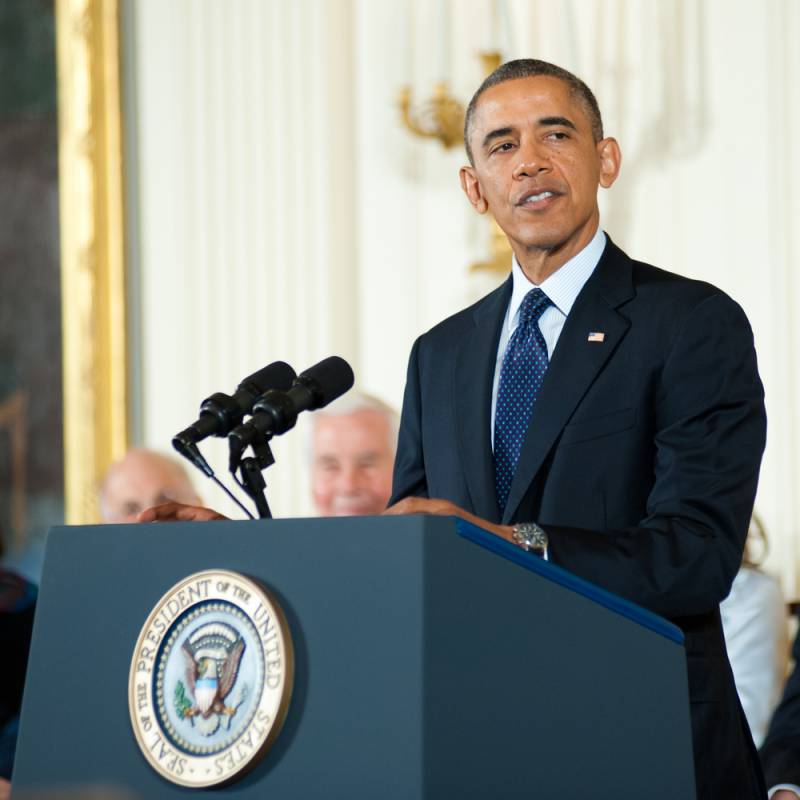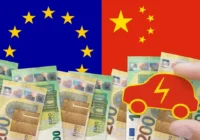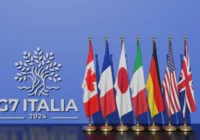As Cuba and the US bury the hatchet, friends, both old and new, are doing business with each other.
The ink has barely turned dry on the Iran nuclear deal, but Russia has declared that it will be supplying S-300 missile systems to Tehran. The delivery of S-300s was cancelled in 2010 after the United Nations imposed sanctions on Iran. The nuclear deal is supposed to be an interim one and has many enemies. Israeli Prime Minister Binyamin Netanyahu, US senators such as Tom Cotton and hard-line Iranian mullahs are united in their opposition to the agreement.
Ayatollah Ali Khamenei has already declared that there is no guarantee of a final deal. Congress has pushed through a compromise bill that has forced US President Barack Obama to give it a voice on the final agreement with Iran. But Russia is treating the nuclear deal as fully done. The S-300s are on their way to Iran despite Israel and the United States jumping up and down in woolen underwear.
More importantly, Iran and Russia have begun a $20 billion oil-for-goods swap, exchanging grain, equipment and construction materials for up to 500,000 barrels of Iranian crude a day. Russian Deputy Foreign Minister Sergei Ryabkov argues that “this is not banned or limited under the current sanctions regime.”
Love is in the air not just for Russia and Iran. A ménage à trois is going on that involves China, too. Russia sold S-400 missile systems to China even as 300 US paratroopers arrived in Ukraine. With a tottering economy, Russia has few things to sell to the world and defense is the quickest way to earn some cash. China is not only beefing up its defense but also securing access to energy. Its insatiable thirst for oil and gas make it cozy up with Russia and Iran. Iran is already a founding member of the Shanghai-based Asian Infrastructure Investment Bank (AIIB), and the Chinese are planning huge investments in Iran’s energy sector to develop both gas and oil fields.
In 2014, China’s state-owned Xinhua News Agency published features titled “New Silk Road, New Dreams” and “New Maritime Silk Road” that delved into China’s historic, cultural and trade ties with neighboring countries. Both of these are now rumored to touch Chabahar, the only Iranian port with access to open seas. AIIB is planning to finance a number of New Silk Road projects in Iran. Russia is also promising to pitch in.
It is little surprise that this week the BBC published an article titled, “Is the West Losing Its Edge on Defense?” In the article, a former British general bemoans two decades of “physical and moral disarmament” by the West. Wage inflation and exorbitantly expensive equipment mean that Western budgets for defense look inflated. Furthermore, politicians in ageing Europe are increasingly unwilling to commit time, money and energy to defense issues. Research supports the arguments made in the BBC article, and it reveals that tectonic plates are shifting to create a new balance of power on the planet.
As power shifts, even the US is taking a backseat in the Middle East. In a breathtakingly brilliant article at Fair Observer, Landon Shroder cuts through the noise to lay bare the tectonic plates that are on the move. Even as three weeks of Saudi airstrikes have failed to stem the advance of the Houthis in Yemen, al-Qaeda in the Arabian Peninsula has taken over Mukalla, a Yemeni port. Shroder says that the Saudis are committing strategic suicide. They will get bogged down in Yemen and play into Iranian hands.
As the Saudis commit hara-kiri, the US is finally changing course in Latin America. Years of meddling and supporting dodgy generals during the Cold War have led to resentment against Uncle Sam in the Western Hemisphere. Finally, President Obama had a historic meeting with Cuban President Raúl Castro at the Summit of the Americas in Panama City. Obama promised an end to meddling, and the US has taken Cuba off the list of state sponsors of terrorism, where it was placed in 1982.
Leaders of the United States and Cuba last met in 1958. Much of Latin America has admired Cuba if not liked it for standing up to big brother. The US-Cuba rapprochement is immensely popular among Latin American leaders and it is a big feather in Obama’s cap. Since the success of the Cuban Revolution in 1959 and the days of the Cold War, relations between these two neighbors have been fraught with distrust. Now, despite Castro’s railing and ranting against the US, both countries are burying the hatchet.
Perhaps it was symbolic that Eduardo Galeano, the fiery Uruguayan writer who penned Open Veins of Latin America: Five Centuries of the Pillage of a Continent, died this week. Since 1971, when the book was first published, it has fired up generations of Latin Americans to fight for justice. Galeano himself declared that his book belonged to “a past era” and the new era has finally begun.
The US-Cuba deal works well for both countries. Cuba needs investment to generate employment and raise living standards. The US needs new markets and relationships in a region that is increasingly leaning toward China. The Middle Kingdom is now the de facto banker of countries like Venezuela, Argentina, Brazil and Ecuador. As per Forbes, China lent Latin American countries $22 billion in 2014 alone, taking the total since 2005 to $119 billion. Chinese goods flood Latin American markets and commodities make their way from the region to China. It is little surprise that Obama is paying heed to Latin America.
Even as there is good news from Latin America, South Africa is witnessing xenophobic violence against foreigners. Immigrants from other African countries have long faced discrimination and now face spreading violence. This is most embarrassing for South African leaders, who were once given refuge by other newly independent African states when they were fighting apartheid.
As per the World Bank, 54% of the South African population lives below the poverty line. Unemployment is over 25%, and for the 15-24 population, it is as high as 53%. Unsurprisingly, desperation runs high. Entrepreneurial immigrants tend to outperform struggling natives and become obvious villains because they are seen as stealing resources and jobs. Urban ghettos and a culture of crime socialize people into violence. A tiny spark can lead to an eruption of long accumulated resentment. Only economic growth and a rebuilding of the social fabric can contain violence, but that is easier said than done.
Finally, technology giant Google was in the news. Many years ago, Microsoft was targeted by competition authorities that nearly broke up the behemoth. Today, it is the turn of Google. European authorities think that Google is abusing its dominant position by pushing consumers to purchase in-house shopping services. Android, Google’s mobile platform, is also under investigation. It is the first time that the “don’t be evil” company faces an antitrust investigation. This may be a sign of things to come.
*[You can receive “The World This Week” directly in your inbox by subscribing to our mailing list. Simply visit Fair Observer and enter your email address in the space provided. Meanwhile, please find below five of our finest articles for the week.]
[seperator style=”style1″]The Conversationalist Guide to the Modern Middle East[/seperator]
Landon Shroder provides a lowdown on the modern Middle East.
The Middle East has exploded into an elaborate vortex of aerial campaigns, proxy wars and shifting alliances. Unless you are an expert on international affairs, it is almost impossible to get a balanced opinion on what is happening throughout the region — especially with the salvo of commentary coming from the media.
Nevertheless, as the spring months will contain an excess of cocktail parties and happy hours, it is incumbent upon us to speak intelligently about these things. Therefore, I give you the first-ever “Conversationalist Guide to the Modern Middle East.” A pithy collection of talking points, which will help you astonish your friends, colleagues and lovers at any social event where alcohol might be present.
Please feel free to claim any (or all) of these points as your own.
The Middle East is currently on fire, there is no disputing this. Years of foreign policy successes and failures are coming to fruition… Read more
[seperator style=”style1″]Cuba’s Coming Out Party at the Americas Summit[/seperator]
For over 50 years, Cuba has fended off US attempts to overthrow its leaders.
For Cuba, the VII Summit of the Americas, which was held in Panama between April 10-11, marked a “coming out” party. Banned from past gatherings since they began in 1994, Cuba was not only invited to participate in this year’s summit, but it was also the belle of the ball — albeit the belle was a shaky, 83-year-old Raul Castro who lacks his brother Fidel’s charisma.
Cuba’s presence was heralded in the speeches of every nation’s leader. And the handshake between US President Barack Obama and Raul Castro was a Kodak moment.
In Castro’s long 49-minute speech, he gave a history lesson of past US attacks on Cuba — from the Platt Amendment and supporting the dictator Fulgencio Batista, to the Bay of Pigs invasion and the opening of Guantanamo Bay. But Castro was gracious to President Obama, saying he was not to blame for this legacy… Read more
[seperator style=”style1″]What Do Fairy Tales Teach Our Children?[/seperator]
When we debate the healthiness of fairy tales and Disney movies, are we missing the point about what our children really need?
A few years ago, the parents of a little girl in my class underwent an unpleasant divorce. I thought the child was handling it relatively well until I read her poem assignment for class.
“Leave me alone in my fairy tale bubble / away from your harsh words,” she’d written.
Personally, I carry a healthy amount of feminist skepticism about the lessons that fairy tales teach young girls. In the pre-Katniss days when I grew up, many girls looked for inspiration elsewhere. Joss Whedon’s Buffy the Vampire Slayer, for example, offered an alternative to the traditional princess tale.
These stories, like the recent Cinderella, can validate the wrong lessons: be silent in the face of injustice; wait for a man to save you; if a girl is just pretty and kind enough, her life will work out. Many women have spoken… Read more
[seperator style=”style1″]Economics is an Art, Not a Science[/seperator]
Human beings are complex, and economics simplifies them grossly to pretend to be a science.
Richard Dawkins, a brilliant scientist and the author of The God Delusion, criticizes belief without evidence. Since there is no proof that Mary was a virgin, belief in the idea of the Virgin Mary is superstition.
Economics is a field of human study that largely believes human beings are rational. Anyone who has ever fallen in love, dealt with parents or children, been under stress or simply been excited knows we are not quite rational creatures. History and daily reality tell us that we are far from rational. What explains the two World Wars, the Holocaust or Pol Pot? Why do we eat the extra ice cream instead of going for a run? The belief among economists that human beings are terribly rational is highly irrational and, as per Dawkins, might qualify as superstition.
Economics makes a false claim to be a science just like Political Science. Read more
[seperator style=”style1″]Drug Policy is Determined by Politics, Not Evidence[/seperator]
Drug policy has never been about reducing harm or protecting the public.
History shows that drug policy is rarely about preventing harm. More often, it is concerned with issues of race, profit, morality and political power.
In late 2014, British Home Secretary Theresa May came under fire from then-Drugs Minister Norman Baker, as well as several advocacy groups, for the alleged suppression of a report discussing drug policy reform. The report, which has at long last been released to the public, examines the policies of several other countries in an attempt to improve current policy in the United Kingdom.
Despite successive governments claiming that the current approach is working, prohibition has undeniably failed. Drug use and drug-related health problems, including deaths, have generally remained stable or increased, while drug-related crime has also risen. This is despite the British government spending an estimated £19 billion per year on enforcement efforts, anti-drug education in schools and health care associated with drug use. Read more
The views expressed in this article are the author’s own and do not necessarily reflect Fair Observer’s editorial policy.
Photo Credit: Denis Vrublevski / Kamira / Rena Schild / Shutterstock.com
 We bring you perspectives from around the world. Help us to inform and educate. Your donation is tax-deductible. Join over 400 people to become a donor or you could choose to be a sponsor.
We bring you perspectives from around the world. Help us to inform and educate. Your donation is tax-deductible. Join over 400 people to become a donor or you could choose to be a sponsor.
Support Fair Observer
We rely on your support for our independence, diversity and quality.
For more than 10 years, Fair Observer has been free, fair and independent. No billionaire owns us, no advertisers control us. We are a reader-supported nonprofit. Unlike many other publications, we keep our content free for readers regardless of where they live or whether they can afford to pay. We have no paywalls and no ads.
In the post-truth era of fake news, echo chambers and filter bubbles, we publish a plurality of perspectives from around the world. Anyone can publish with us, but everyone goes through a rigorous editorial process. So, you get fact-checked, well-reasoned content instead of noise.
We publish 2,500+ voices from 90+ countries. We also conduct education and training programs
on subjects ranging from digital media and journalism to writing and critical thinking. This
doesn’t come cheap. Servers, editors, trainers and web developers cost
money.
Please consider supporting us on a regular basis as a recurring donor or a
sustaining member.
Will you support FO’s journalism?
We rely on your support for our independence, diversity and quality.













Comment